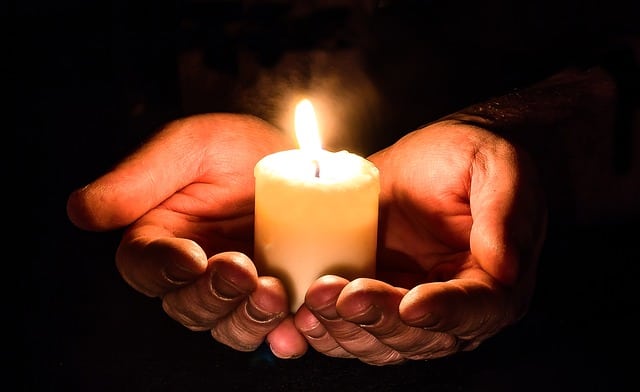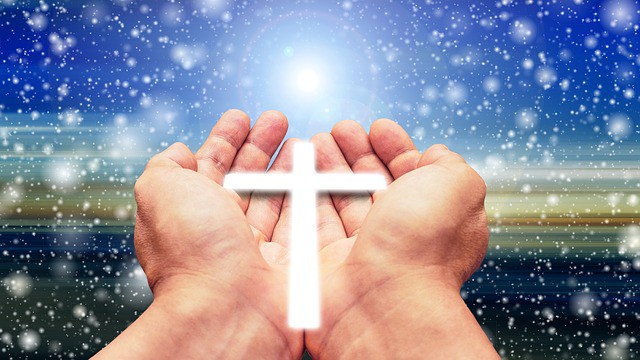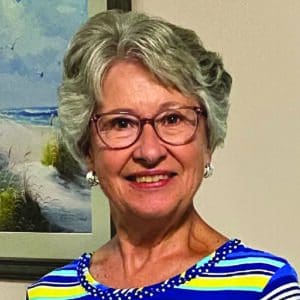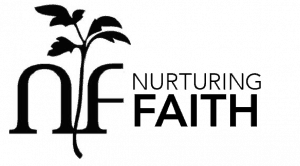If we are going to live a Christian
So, what is the sum and substance of the Christian life? What is the bottom line, the bullseye, the centerpiece, the core, essence, gist, heart of it all? The word “crux” is specifically the word we need to explore for the Christian life because it has its root in another very important word for Christians. Its origin is in the Latin term for “cross.” We hear the word cross and think of torture, execution, sadness
I hope you will agree that the central issue requiring attention in the Christian life—daily—is forgiveness. It is what Jesus provided on the cross and it is the crux of the matter for our everyday lives—those areas affected by our wrongs and those of others—the dark corners of despair, anger or sorrow left behind by our mistakes and the mistakes of others.
Forgiveness Is the Way of Following Christ
I once participated in a spiritual formation course in which I had the rare privilege and rich blessing to read on the topic of forgiveness intensely for about three months. Then I spent four days of intensive listening and discussion in a conference with Marjorie Thompson, the author of Soul Feast and a study series entitled The Way of Forgiveness. Even that title puts forgiveness in the right perspective, for the early followers of Christ were called followers of The Way. Forgiveness is the way of following Christ. That shouldn’t be news to
When asked to teach his disciples how to pray effectively, he instructed them to pray, “Forgive us our trespasses as we forgive those who trespass against us.” In His teachings, He instructed us to put forgiveness before worship, saying: “Therefore, if you are offering your gift at the altar and there remember that your brother or sister has something against you, leave your gift there in front of the altar.

Forgiveness Is a Pool of Light
In my observation and experience, there is no issue of life that both troubles and blesses people more than forgiveness. I have come to imagine it as a pool of light that we set out in the world. With enough pools of light, we could dispel the darkness that pervades our world—beginning in our personal relationships and communities. It is perhaps what Jesus had in mind when He said in John 8:12, “I am the light of the world. Whoever follows me will never walk in darkness, but will have the light of life.” Matthew quoted Him as saying to His hearers, “You are the light of the world (Matthew 5:14).”
We believe that what He said to those early disciples, He says to all, for Jesus said, “As the Father has sent me, even

Forgiveness Frees Us
Forgiveness allows us to move forward,
I think that the truth that we are to hold on to is forgiveness. I think it is forgiveness that sets us free. Without forgiveness, we are unable to live fully into the present or the future. We merely exist in a haunted backward-focused worldview—a restricted view of life as if looking out from
Countryman also said, “Forgiveness involves a letting go—letting go our investment in the past so that we can turn toward the future; letting go our need to control the other, even letting go our sense of our own righteousness so that something new can happen in the world. Forgiveness builds the future.”

Forgiveness Is a Gift
One of the concepts that I find most misunderstood among Christians is the view that forgiveness is our duty—a begrudged burden we take on to ensure we are forgiven by God. In the Lord’s
The concept I have embraced is one of being “authorized” to forgive for the sake of others and the Glory of God, rather than forced to forgive for our own sake. We are authorized in the sense of being commissioned by the only One who has the authority to judge or forgive sins. We are authorized in the sense of being given the power to extend forgiveness as a gift of God and as a reflection of God’s nature. We are authorized to forgive sin in Jesus’ name as His ambassadors, forgiving as He forgives—passing on the gift we have received according to the pattern of His forgiveness for us and of His perfect Love for all. Though not a burden or a duty, forgiveness IS work. It is not easy and it is often messy, for many situations are very complex and may take years to unravel.
Hear again from the words of William Countryman: “To be truly godly, to be ’perfect’ as our heavenly Father is perfect… means scattering our goodwill freely over the deserving and the undeserving alike, over those who need (or deserve) our forgiveness and those who don’t.”

Called to Be Ambassadors of Forgiveness
Forgiveness is not only work, but it also requires transformation. The Apostle Paul declared, “Therefore, if anyone is in Christ, he is a new creation; the old has passed away, behold, the new has come. All this is from God, who through Christ reconciled us to himself and gave us the ministry of reconciliation; that is, in Christ God was reconciling the world to himself, not counting their trespasses against them, and entrusting to us the message of reconciliation (2 Cor. 5:17-20).” We are re-created in Christ to serve as ambassadors, and God making His appeal for reconciliation through us—through our forgiveness as much as anything.
The words of Jesus on the cross have gripped my heart as the highest example for our calling to be ambassadors of forgiveness. He prayed from the cross, “Father, forgive them, for they not what they do.” It has become clear to me that there is no situation that those words from the cross cannot cover—in our private lives, in our relationships, in our communities, or in the world. It is true. No one fully understands why they do what they do. We are all in the same boat as the Apostle Paul who declared, “I do not understand what I do. For what I want to do I do not do, but what I hate I do (Romans 7:15).” That is true for our enemies—those who hurt, offend and mistreat us. That is also true for us.
If we or our enemies could truly see God for who He is and life for what it is supposed to be, we would not do or say or write the hurtful things we do. We would not inflict pain on one another. We would not play our “name, blame and shame” games. Once we can see clearly in eternity, I believe that forgiveness will pour forth in a huge tsunami of love. I think that will make Heaven truly Heaven. In the meantime, we are called to be God’s ministers of that great new possibility, even as we blunder through the often messy process to give and receive forgiveness on earth.
Forgiveness offers a chance to move on from a damaging and unchangeable experience. How is that possible? It is possible because the foundation for forgiveness is found in believing in our beloved status, our blessedness in God—for us and our enemies. We cannot answer the unanswerable questions that are tied up in issues of forgiveness, but we can begin to move on at the point of God’s love. From that perspective, we can begin again in any situation.

Forgiveness Is a Path to Follow
I come from a broken home with two dysfunctional family units. My childhood experiences in both homes wounded me and gave me a crucible in which to wrestle with the complexities of forgiveness—both given and received. While I have not been given a magic wand to wave over any situation, forgiveness has provided me with a path to follow—a light to follow. As
One of the abiding thoughts that guides me is that Jesus stayed at the table on the eve of his crucifixion, even though He knew that Peter would deny Him, Judas would betray Him, and all would desert Him. This has enabled me to “stay at the table” with my family and others, although there are times when that has been difficult—even painful. Jesus did not leave His disciples on that awful night. Instead, He fed them and washed their feet. He returned to them after their denial and desertion, guided their fishing expedition and fed them breakfast. He
So, we can commit to

Forgive in Remembrance of Jesus
We are called to forgiveness every time we participate in the Lord’s Supper. The meaning of the Lord’s Supper has always been interpreted to me as a call to remember Jesus, to remember that night, and to remember His sacrifice for our
With forgiveness as the supreme goal of my life, my thoughts can be re-oriented and focused outward rather than inward, forward rather than backward. I find inspiration in the image of forgiveness as an act of setting small pools of light aglow in the world. The light of forgiveness emanates from God’s love for us. Forgiveness is more than simply letting go of an issue. Instead, through our actions, we enable people to believe the love that the Father has for them—a love that can withstand the withering judgment of those in enmity and a love that can melt even cold hearts. The entry into the blessedness of forgiveness is an entry into the path of the light of God’s love. In God’s love, we are given the freedom to let go of our pain and free others of theirs—in remembrance of our Lord and Savior. It is the crux of it all if we are to call ourselves Christians.
Holy Bible, New International Version®, NIV®
Copyright ©1973, 1978, 1984, 2011 by Biblica, Inc.®
Used by permission. All rights reserved worldwide.





This Post Has 2 Comments
Excellent thoughts and beautifully written. I have learned and continue to learn how freeing forgiveness can be. All because of Christ’s forgiveness for my sin. Praise be to God!
Thank you so much for your thoughtful and encouraging response. It warms my heart!